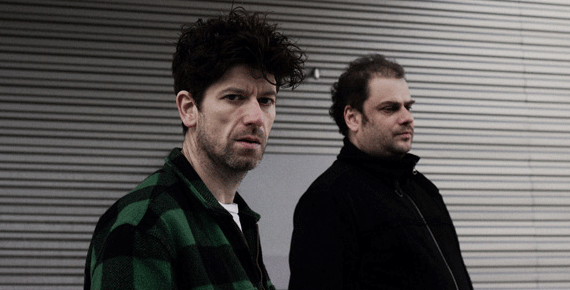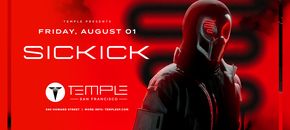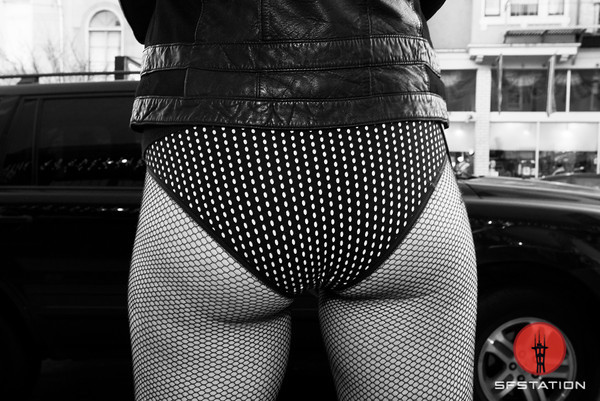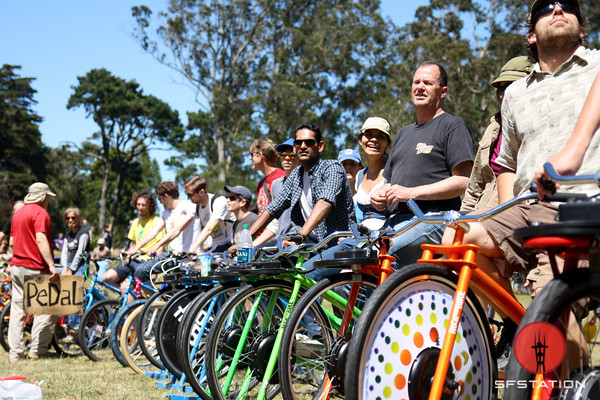Q&A: JG Wilkes of Optimo
JG Wilkes is one half of Optimo—the long-standing DJ duo who had a weekly party of the same name at the Sub Club in Glasgow for 12 years up until 2010. Having DJ’ed since 1989, he has seen it all when it comes to dance music and continues to stay busy with his partner, JD Twitch, as they dish out an eclectic array of tunes with their anything-goes attitude across the world and curate music through their label, Optimo Music.
In anticipation of their upcoming party with No Way Back at Monarch on March 8, we caught up with JG to get a glimpse of the rich history he has been a part of and the direction he sees electronic music going.
When was your first exposure to rave culture and what was it like?
I bought my first house records in 1986 when I was still living in Belfast where I grew up. There were no warehouse parties in Belfast at that time. There were a couple starting that summer, but I was leaving to Scotland that summer to go to art school. The more organized rave scene started around 1989.
That period of time was such a shocking change in the type of music that people were listening to and it happened in the span of a few months—from most people in a club drinking alcohol and listening to indie music or pop to no one drinking alcohol and everyone taking ecstasy and listening to house music. It was quite a thing to see and be a part of.
When you met Keith (Twitch), he was doing a house/techno night called Pure. How had house and techno developed since then?
I think what brought Keith and I together was a frustration with the direction techno was going in the mid-90s. The clubs were becoming predominated by males and the music was quite macho and repetitive, but not in an interesting or hypnotic way—just in a grinding and boring way. It was heading into a corner.
It wasn’t much fun and it felt like more of a hostile environment. We felt maybe there’s a possibility for a party that we could delve into other parts of our record collections and maybe involve live music and some other disciplines as well and that’s kind of way we started Optimo, our parties.
We came up on two years and it got really popular in the span of a few weeks and stayed that way for years as we got more adventurous with the types of artists we brought to perform. Sometimes we had more money at our disposal and we brought bigger bands and supported the local scene as well.
[youtube]http://www.youtube.com/watch?v=p7F5t-77tgg[/youtube]
What kinds of local bands would you bring in?
In the first few years a lot of people from different creative communities in Glasgow who attended Optimo were students, people who were in bands, or just older freaks who just hung around the scene for years. Optimo was a meeting point for all sorts of cross currents so there were a lot of bands that got together through the club. That was a great thing for us.
What’s one of your most memorable experiences?
Whitehouse was one of my favorite performers there. They’re a noise band.
How did people respond to that?
We had printed notices warning about the extremity of the kind of music—that it could be dangerous for your hearing and that some people might find it offensive. We supplied earplugs on the way into the club.
I felt that it wouldn’t appeal to most people, but by the end of the performance there was a sort of cleansing and euphoria. There were lots of young kids who came to the club to find out about new music and put a lot of trust in us to find out about our program. It was interesting to see how engaged they were.
How have you seen DJ culture change in respect to technology?
I think there’s the argument that when people have less at their disposal sometimes what they make is more mindful. But then again, I’m constantly surprised and impressed by new electronic music that’s made with very simple, cheap technology made by very young artists and I think that’s a great thing.
I think really good DJs have something that comes from within. That can be the most basic of equipment, with a real human feel, personality, and charisma that they’re able to convey some love of the music that they’re playing. That rarely has to do with the technology.
[youtube]http://www.youtube.com/watch?v=3ZDXMKDInd8[/youtube]
Who are some of your favorite DJs right now and why?
We did a Boiler Room set recently and just before we played there was a guy called Morphosis who releases on Dekmantel. He played so powerfully—it had this psychedelic feel to the techno he was playing.
A few nights ago in London we played with Matias Aguayo with Comeme. There’s someone who DJs and is taking things to a new level but not necessarily with technology—he’s doing it incorporating simple percussion, simple microphone techniques, simple analog effects, and singing along with his own tracks. He’s an exciting DJ to see and is so entertaining which I think is our responsibility at the end of the day: to be an entertainer.
And Conor and Solar from No Way Back. I haven’t seen them play outside of San Francisco, but they’re two world class DJs and they should be heard more.
Can you tell me a little bit about your new monthly show on Rinse FM?
Rinse has started to branch out. They were primarily bass music and grime and they’re just starting to involve some new DJs, like Daniel Avery and us.
What do you hope to bring to the table for the audience of Rinse FM?
I would assume they invited us to diversify the type of music the station supports and we certainly endeavor to do that. In this new show there’s everything from mid-70s experimental electronic music to improvised vocal and experimental stuff and new techno records and field recordings and spoken word. I hope we don’t lose many listeners with that.
Optimo plays No Way Back at Monarch, Friday, March 8, with support from Conor and Solar. Tickets are $12 to $20. More info.





